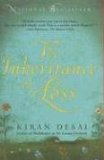Summary | Excerpt | Reading Guide | Reviews | Beyond the Book | Readalikes | Genres & Themes | Author Bio

Critics' Opinion:
Readers' Opinion:
First Published:
Jan 2006, 336 pages
Paperback:
Aug 2006, 384 pages
 Book Reviewed by:
Book Reviewed by:
BookBrowse Review Team
Buy This Book
They had come for the judge’s hunting rifles.
Despite
their mission and their clothes, they were unconvincing. The oldest of
them looked under twenty, and at one yelp from Mutt, they screamed like
a bunch of schoolgirls, retreated down the steps to cower behind the
bushes blurred by mist. “Does she bite, Uncle? My God!”— shivering there in their camouflage.
Mutt
began to do what she always did when she met strangers: she turned a
furiously wagging bottom to the intruders and looked around from
behind, smiling, conveying both shyness and hope.
Hating to see her degrade herself thus, the judge reached for her, whereupon she buried her nose in his arms.
The
boys came back up the steps, embarrassed, and the judge became
conscious of the fact that this embarrassment was dangerous for had the
boys projected unwavering confidence, they might have been less
inclined to flex their muscles.
The one with the rifle said something the judge could not understand.
“No Nepali?” he spat, his lips sneering to show what he thought of that, but he continued in Hindi. “Guns?”
“We have no guns here.”
“Get them.”
“You must be misinformed.”
“Never mind with all this nakhra. Get them.”
“I order you,” said the judge, “to leave my property at once.” “Bring the weapons.”
“I will call the police.”
This was a ridiculous threat as there was no telephone.
They
laughed a movie laugh, and then, also as if in a movie, the boy with
the rifle pointed his gun at Mutt. “Go on, get them, or we will kill
the dog first and you second, cook third, ladies last,” he said,
smiling at Sai.
“I’ll get them,” she said in terror and overturned the tea tray as she went.
The
judge sat with Mutt in his lap. The guns dated from his days in the
Indian Civil Service. A BSA five-shot barrel pump gun, a .30
Springfield rifle, and a double-barreled rifle, Holland & Holland.
They weren’t even locked away: they were mounted at the end of the hall
above a dusty row of painted green and brown duck decoys.
“Chtch, all rusted. Why don’t you take care of them?” But they were pleased and their bravado bloomed. “We will join you for tea.”
“Tea?” asked Sai in numb terror.
“Tea
and snacks. Is this how you treat guests? Sending us back out into the
cold with nothing to warm us up.” They looked at one another, at her,
looked up, down, and winked.
She felt intensely, fearfully female.
Of
course, all the boys were familiar with movie scenes where hero and
heroine, befeathered in cosy winterwear, drank tea served in silver tea
sets by polished servants. Then the mist would roll in, just as it did
in reality, and they sang and danced, playing peekaboo in a nice resort
hotel. This was classic cinema set in Kulu-Manali or, in preterrorist
days, Kashmir, before gunmen came bounding out of the mist and a new
kind of film had to be made.
The cook was hiding under the dining table and they dragged him out.
“Ai aaa, ai aaa,” he
joined his palms together, begging them, “please, I’m a poor man,
please.” He held up his arms and cringed as if from an expected blow.
“He
hasn’t done anything, leave him,” said Sai, hating to see him
humiliated, hating even more to see that the only path open to him was
to humiliate himself further.
“Please living only to see my son please don’t kill me please I’m a poor man spare me.”
His
lines had been honed over centuries, passed down through generations,
for poor people needed certain lines; the script was always the same,
and they had no option but to beg for mercy. The cook knew
instinctively how to cry.
Copyright © 2006 by Kiran Desai. Reprinted with permission from Grove Atlantic, Inc. All rights reserved.





The Flower Sisters
by Michelle Collins Anderson
From the new Fannie Flagg of the Ozarks, a richly-woven story of family, forgiveness, and reinvention.

The House on Biscayne Bay
by Chanel Cleeton
As death stalks a gothic mansion in Miami, the lives of two women intertwine as the past and present collide.

The Funeral Cryer by Wenyan Lu
Debut novelist Wenyan Lu brings us this witty yet profound story about one woman's midlife reawakening in contemporary rural China.
Your guide toexceptional books
BookBrowse seeks out and recommends the best in contemporary fiction and nonfiction—books that not only engage and entertain but also deepen our understanding of ourselves and the world around us.